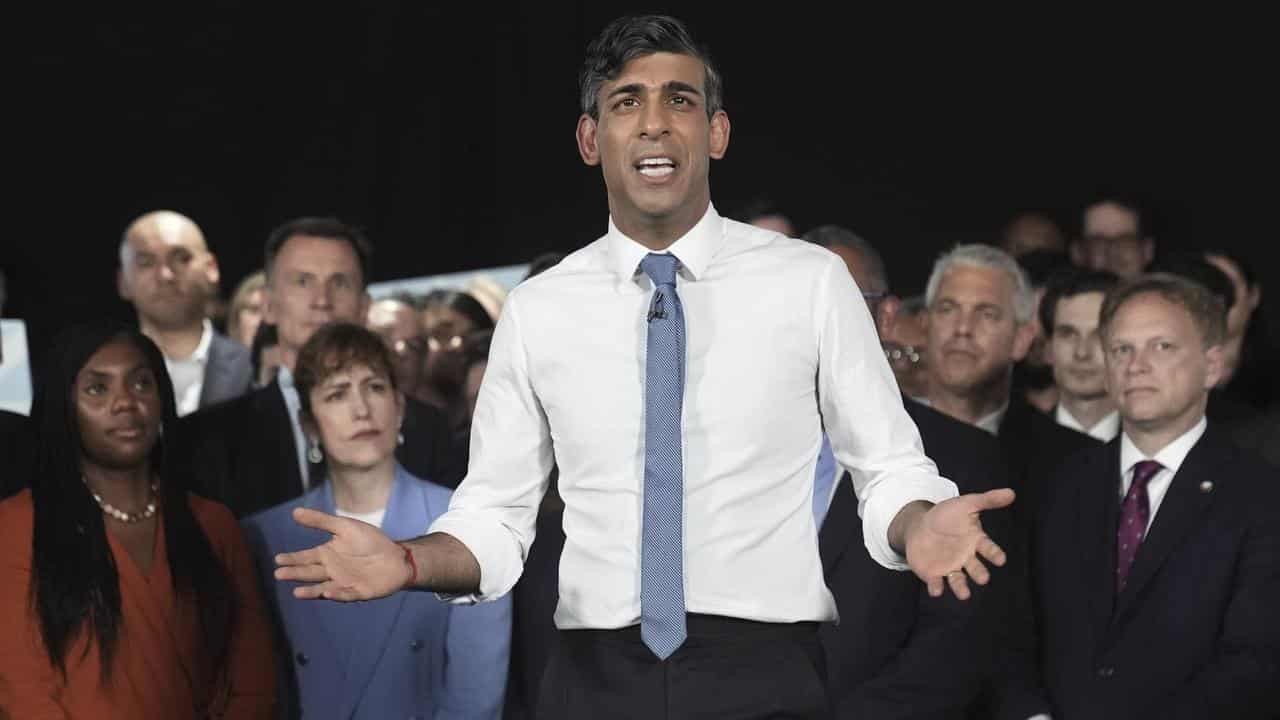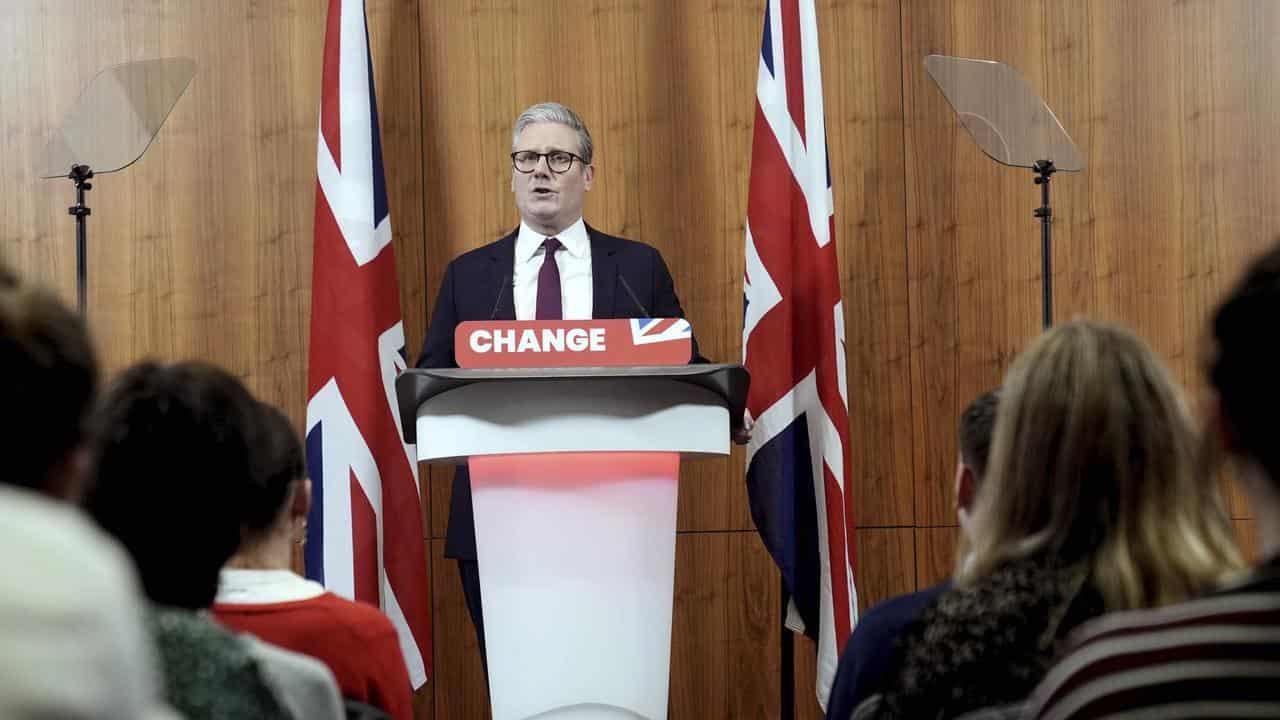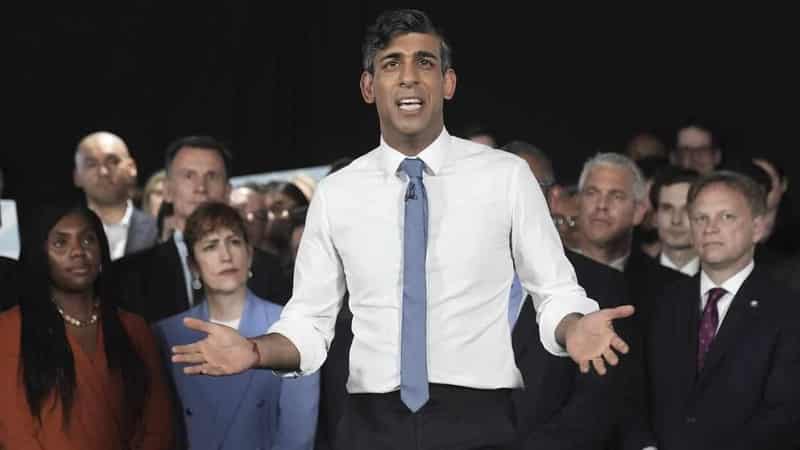
British Prime Minister Rishi Sunak and his Labour Party rival Keir Starmer are kicking off their election campaigns in earnest a day after Sunak surprised the nation by calling a vote for July 4.
Sunak, whose Conservative Party trails Labour by about 20 percentage points in opinion polls, ended months of speculation centred on an election in October or November, and instead used a rain-soaked address to the electorate on Wednesday to kick off what is likely to be six weeks of frenetic campaigning.
Both party leaders are expected to hit the campaign trail, seeking to seize the early initiative by meeting voters and delivering the messages they hope will earn them enough seats in parliament to form a majority government on July 5.
At stake is control of the world's sixth-largest economy which has endured years of low growth and high inflation, is still battling to make a success of its 2016 decision to exit the European Union, and is slowly recovering from twin shocks of COVID-19 and an energy price spike caused by the war in Ukraine.
That backdrop makes the economy one of the most important electoral battlegrounds.
Sunak, 44, announced the election on the day inflation returned close to target.
His early message to voters has been that his plan for the economy is working and only he can turn that stability into a recovery that benefits all.
"Who do you trust to turn that foundation into a secure future for you, your family and our country?" he told a rally late on Wednesday, casting Labour as a party without a plan.
"We're working for a Britain where we have renewed confidence in ourselves and our communities.
"A country where hard work will be met with fair rewards and where the opportunities enjoyed by the previous generations will be there for future ones."
Starmer, a 61-year-old former lawyer who has pulled Labour's politics back to the centre ground after a spell of electorally unsuccessful left-wing leadership, has pitched his party as one that will bring change for a disgruntled electorate.

"Labour will stop the chaos, turn the page and get Britain's future back," he said in an early campaign message to party members, describing the election as "the fight of our lives".
"This is the moment we've been working towards.
"We must come together to beat the Tories and deliver a Labour government to change Britain for the better."
Some Labour Party officials are concerned their advantage is not as solid as it appears, fearing many voters remain undecided.
Sunak might be aiming to capitalise on that uncertainty and wrong-foot Labour, which has still to complete the selection of all its parliamentary candidates, a party veteran said.
Sunak will be hoping some economic gains and the first flights in his centrepiece immigration plan of sending illegal asylum seekers to Rwanda will also boost his party's fortunes.
The earliest possible date for those flights is June 24, 10 days before the election.
If Labour wins the election, it will end 14 years of Conservative government and Britain, once known for its political stability, will have had six prime ministers in eight years for the first time since the 1830s.
While the electioneering gets under way, activity in parliament is expected to pick up too as the government works out which of the pieces of legislation currently in process will be rushed through, and which will fall by the wayside.
Laws currently under discussion include Sunak's plan to impose some of the world's strictest anti-smoking rules by banning anyone aged 15 or younger from ever buying cigarettes.









